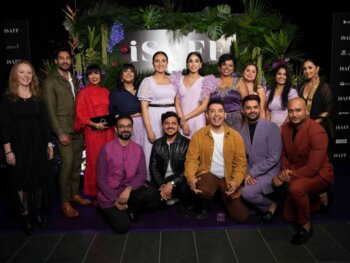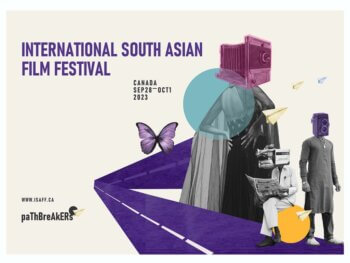
Nisha Pahuja Follows A Father’s Search For Justice In Her Latest Doc “To Kill A Tiger”
Entertainment Feb 22, 2023
Canadian Nisha Pahuja tells us about her widely acclaimed new documentary, which traces the poignant, powerful story of a poor rice farmer in Jharkhand, India, who fights to bring the men who raped his 13-year-old daughter to justice — facing deeply ingrained institutional and cultural misogyny at every turn. Here, Pahuja shares her thoughts on India’s patriarchal culture and how it is also a prison for men, how this seemingly very specific story is universally relatable, and what the spirit of India can teach us about how to perceive and comprehend complex issues.
Eight years ago, documentarian Nisha Pahuja set out to make a film exploring masculinity in India, embedding herself with an NGO called the Srijan Foundation that’s on a mission to change how men and boys see themselves and women. She didn’t know the precise story she would end up telling — until the activists she was trailing led her to Ranjit, a rice farmer in the state of Jharkhand whose 13-year-old daughter had been raped by three men. Suffering unimaginable grief, but determined to get justice, Ranjit and his loved ones faced yet more suffering — including suggestions from police that the girl marry one of her attackers, slanderous gossip from neighbours and threats of violence from the public if they didn’t just let it go. Yet the family persevered in the face of a system that was stacked against them.
Pahuja, who was born in New Delhi but raised in Toronto, took her film to TIFF in 2022. Excited to screen the doc in her hometown, the response was about as good as she could have hoped for, with To Kill a Tiger taking home the Amplify Voices Award for Best Canadian Feature Film.
Recently, the director got on the phone with Anokhi Life to unpack her incisive, harrowing, yet inspirational doc.
MC: I think we all have certain preconceptions we carry with us into any situation in life. What’s the most meaningful way your understanding of this particular story changed from the beginning of the film to completion of the film?
NP: Because I’ve spent so much time in India, and because covering something like gender is not new to me, I didn’t have any preconceived notions. There was nothing that I was trying to chase or was convinced I was going to find. It was literally just following stories. I was following three stories at the time, it wasn’t just Ranjit’s. But this story, it became clear in the edit room that this was the film we needed to make. As a documentary filmmaker, especially as I get older, I tend not to have preconceived ideas of anything. It’s really more just an exploration, and observing things as they happen.
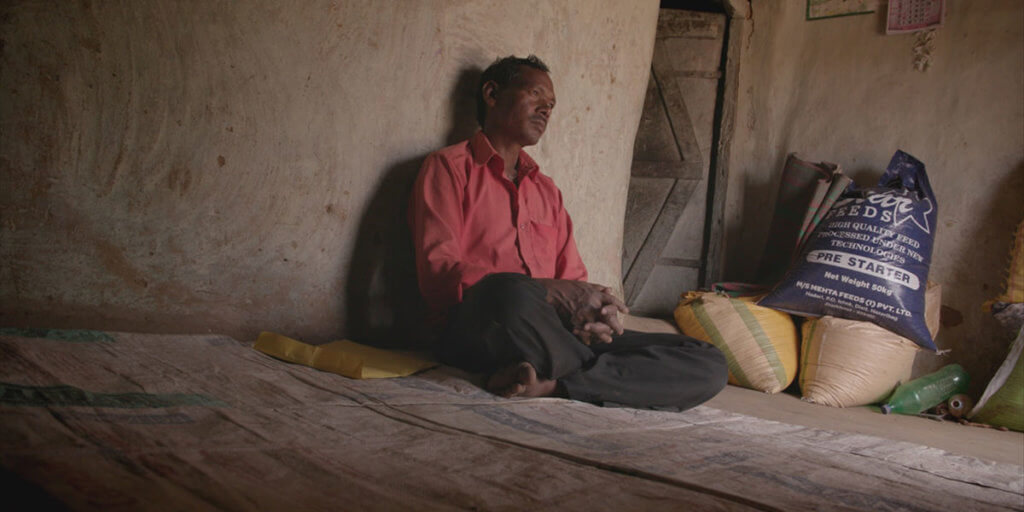
MC: Watching Ranjit speak to your camera and recall the night his daughter was raped . . . even though this story takes place in India and is culturally, socially specific in many aspects, there’s not a parent in the entire world who his story wouldn’t resonate with.
NP: And I think that’s part of its power, actually. On the surface, it takes place in a tiny village in this state in India, and it seems to be very specific and rooted in that particular cultural context — and of course it is. But really the power of the film is a story that all of us can relate to. Every single person. As you said, especially if you’re a parent, right? It’s every parent’s worst nightmare.
MC: The film is also an exploration of the will power and endurance it takes to defy a system, to defy deeply ingrained ideas and institutions — with Ranjit and his family being denied justice at every turn, by the authorities and by their community-at-large . . .
NP: Exactly. He’s like that Greek character, Sisyphus, that’s pushing that boulder up that hill. That’s really what he is — an ordinary man dealing with an extraordinary system, and all the cards are stacked against him. Including his own insecurity — that’s the other thing that starts to chip away. The struggle is not just external, it’s also an internal struggle that he has to deal with. And he keeps going. He perseveres. I think that’s the other reason people relate to him so much. That’s such a common, universal story — the human spirit and what it’s capable of.
MC: This isn’t your first documentary. What’s something you’ve learned over the years, moving from film to film?
NP: If you’re making the kinds of films that I really like to make, which are character-driven, you don’t know what life is going to throw at you. You have no idea, so you have to be flexible, of intellect and of mind. You really have to be flexible, and not get too attached so you can just roll with the punches. And I think now I feel quite capable of that. Before when I was in the field, I was maybe a bit more rigid. I chalk [learning this lesson] up to India and all the time I’ve spent in India; the thing India will teach you is patience and that you have absolutely no control, so you might as well just accept it. It is such a massive, complicated system and culture and country. It runs on its own internal logic that is invisible to the eye. There’s something else going on in that country, and it really teaches you perseverance, patience and acceptance. Those are really good skills to have for a documentary filmmaker [laughs].
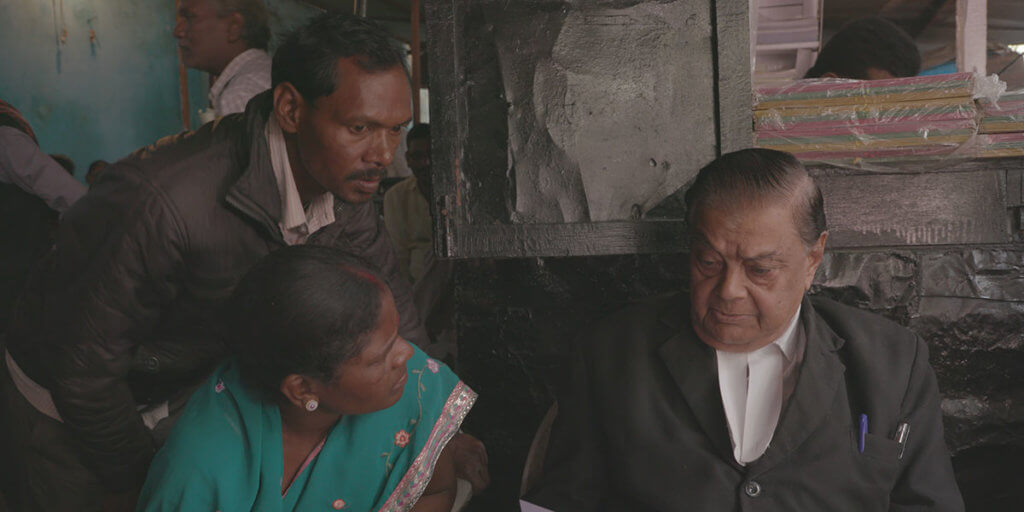
MC: When you are speaking with someone like Ranjit who doesn’t have any experience or comfort on-camera, what’s the process like of getting them to open up and coax out the story?
NP: This is actually something I learned from filmmakers that I worked with when I was a researcher. There’s one filmmaker in particular. His name it John Walker. This thing he said to me that always struck was, “I allow them to get to know me as much as I ask to get to know them.” So it becomes about a relationship and a friendship, as opposed to one person doing all the taking and the other person doing all the giving. That always struck me as very profound. You have to be as unguarded and open and vulnerable as you expect your subjects to be. I tend to become very close to the people that I film with.
MC: When you’re dealing with a topic that is so harrowing as this for eight whole years, is that a difficult headspace for you to exist in as a filmmaker?
NP: No, it isn’t. It starts off being, without a doubt. The most emotional I was, where it was really difficult for me to film, was after [the victim] tells the NGO worker what happened to her. That was a really hard thing for me to be filming, to be witnessing. It was very complicated. I was very emotional; I was trying not to be, because I didn’t want to upset her. I think also when I did my big master interview with her, that was pretty emotional for both of us. And sometimes watching her interview when we were editing, going through that footage, that could sometimes be quite emotional.
But overall, what happens, and I think all documentary filmmakers will say this: you’re in a position where you have a job you need to do, there’s a story that you’re telling and you have a crew that you’re responsible for and a family you’re responsible for. All of that becomes the priority. And it really just becomes about telling the story, to ensure you’re doing justice to these incredible people that have given you the openness and access that they have. So I’m not really traumatized in the field.
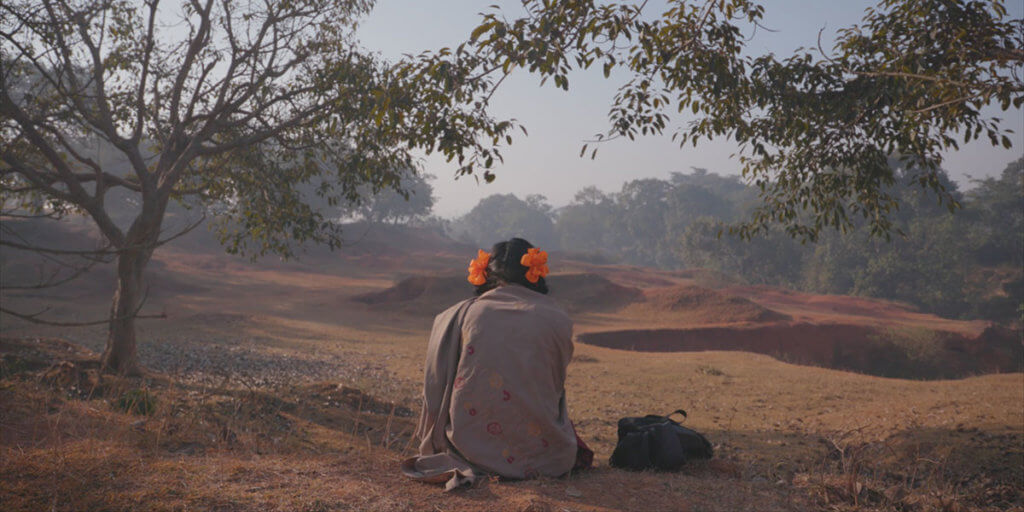
MC: This project, as you’ve said, began as an exploration of masculinity. What do you think this specific story illuminates about masculinity and the treatment of women — in India or around the world?
NP: It’s funny, on the surface that seems like such a simple question, and I actually think it’s a very complicated question. It’s always difficult for me to answer those things, partly because I’m still trying to figure it out. But I think for me, what I started to feel as I was making the film that I set out to make — and this for me was one of the big revelations — was the sense that the system of patriarchy is not just a prison for women, it’s actually a prison for men as well. It’s a system that oppresses all of us. On the surface, it feels like men have a certain kind of power — and they do — but that power has also come at the cost of a certain kind of humanity, especially in a country like India. I think they’ve lost something as a result of the entitlement and the misogyny that’s so readily practised there. They’ve lost something as a result of that. And I felt . . . this is a curious thing and I think it really freaks some people out, but it’s the truth — I felt as bad for her and her family as I did for the men and their families. I felt that they had lost something as well. Not only had they taken something from her, but in that act they’d actually given up something of themselves. And it’s such a tragedy. Obviously, the men have to take responsibility for what they do, but I also see them to a degree as being victims of a larger system.
MC: Acknowledging the complexity and the messy humanity of a situation is not to condone or excuse anything. Too often we simplify things to exist in terms of good vs. evil . . .
NP: That’s right. That’s the other thing that India teaches you, really. In the West, we’re so used to black-and-white and binaries and this very rational way of looking at everything — which is not a bad thing. But what India teaches you is that you can hold so many, on the surface, seemingly contradictory opinions and viewpoints. The older I get, the more I realize that’s actually the only way to understand that world and to be in the world.
Main Image Photo Credit: www.tiff.net
Matthew Currie
Author
A long-standing entertainment journalist, Currie is a graduate of the Professional Writing program at Toronto’s York University. He has spent the past number of years working as a freelancer for ANOKHI and for diverse publications such as Sharp, TV Week, CAA’s Westworld and BC Business. Currie ...





































































































